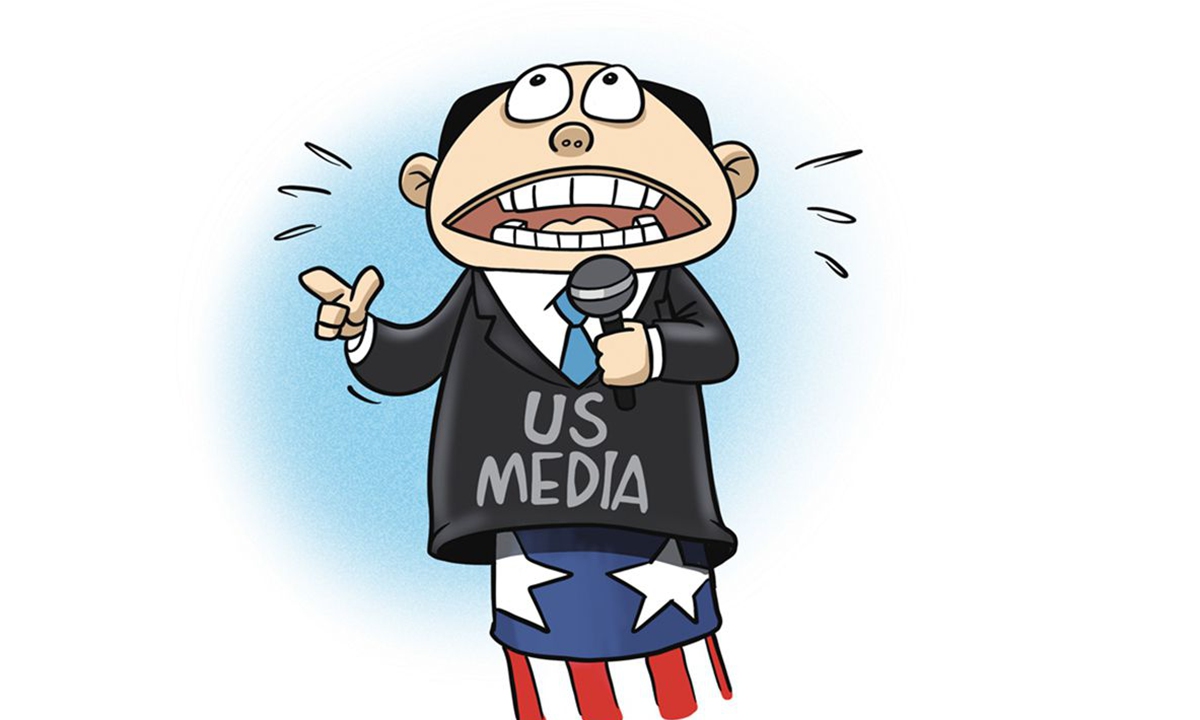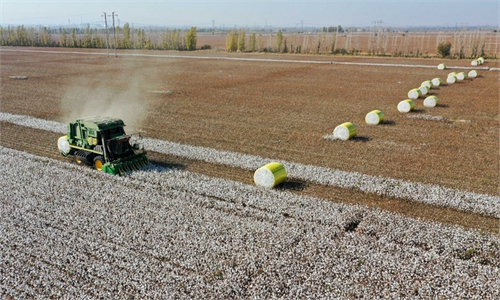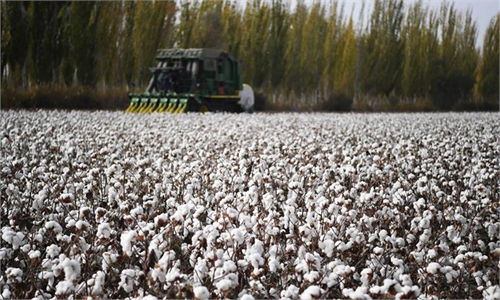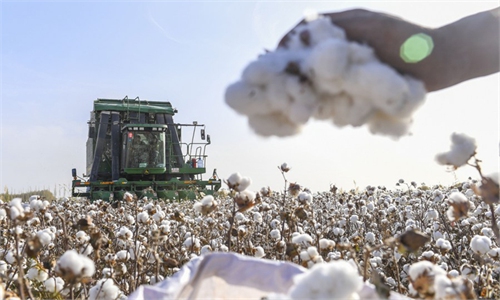
US media Illustration: Liu Rui/GT
The Xinjiang reports from US media outlets focus mainly on so-called human rights. When China-US relations were relatively better, human rights issues in Xinjiang were not the main focus in US media sources. But this topic has gained increasing attention since former president Donald Trump was elected in 2016, in particular, since the COVID-19 pandemic broke out and China-US relations deteriorated rapidly.
For US media outlets, a common tactic concerning "human rights violations" in Xinjiang is to "speak for the Uygur people." In reports by US media, previous violent terrorist attacks posing serious danger to people in Xinjiang are described as common incidents of public security. The US also spread inaccurate data about Xinjiang's population. They have distorted the facts about fair and equal employment opportunities for people of all ethnic groups and the normal movement of the urban population in Xinjiang. Moreover, they have exaggerated and concocted alleged ethnic tensions in Xinjiang in various ways.
When covering Xinjiang, the US media mostly focuses on "inequality and injustice" and the "disturbing human rights situation" of ethnic minorities. Topics, such as Xinjiang's scenery, growing cities and amazing achievements in poverty alleviation are rarely seen in the reports.
As anti-China politicians in the US have put more pressure on China over the last two years over Xinjiang affairs, the media has begun playing a greater supporting role with more smears and accusations of "forced labor" and "genocide" in the region. To conform to Washington, the US media advocates only "religious, reproductive and labor freedom" whenever Xinjiang is touched upon.
This so-called liberalism has led to introspection and criticism within political sciences circles for a long time. If one insists on the "inviolable freedom," disregarding the internal and external conditions of a society, related moves can be regarded as defying and provoking the system and its laws.
There is a common feature in the numerous bills related to Xinjiang passed by the US in recent years. All the bills have ignored facts and common sense and only serve Washington's political purpose of containing China in every possible way. This is clearly shown in reports about Xinjiang by US media outlets that deliberately amplify and even fabricate "evidence" regardless of facts.
To put human rights over other issues is a typical rehash of a cliché in the US' competition against China. Not only is this a cliché in US political discourse but also one of the few straws US media outlets are desperately trying to clutch at. In alignment with Washington's agenda of smearing and attacking China on Xinjiang affairs, the US media deliberately amplifies certain details and blurs the lines between facts and lies. As Danish scholar Jan Oberg has pointed out, the US media's coverage of China has formed an "accusation industry" with obvious intentions of manipulating public opinion.
The author is a professor at the School of Chinese Language and Literature at Xinjiang University. opinion@globaltimes.com.cn



